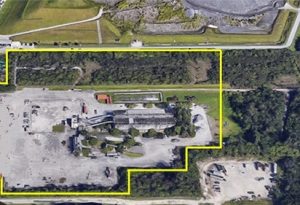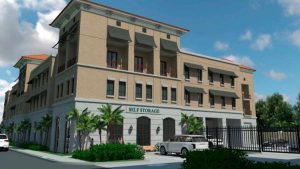The city of Fort Lauderdale is soliciting bids, starting at just over $13 million, for a 24-acre industrial property in Dania Beach that could be developed into offices or warehouses.
Colliers International is overseeing the planned sale of the city-owned industrial property at 4030 State Road 7, just south of I-595. It’s one of Colliers’ first assignments from the city of Fort Lauderdale under its new contract to help manage the city’s real estate and dispose of surplus properties.
Fort Lauderdale requires potential buyers to submit sealed bids for the property in Dania Beach to the procurement division of the city’s finance department by Nov. 3. Sealed bids should include a cashier’s check or certified check to the city in an amount equal to 10 percent of the offered purchase price. Colliers would collect a commission at closing equal to 4 percent of the sale price.
Potential buyers must submit a minimum bid of $13.226 million, the appraised value of the property. The appraisal was completed Aug. 14 by Adrian Gonzalez, Jr., of Adrian Gonzalez & Associates P.A. in Hollywood. Terms of the sale would include payment of all closing costs by the buyer. No purchase money mortgage would be held by the city.
In a memo this week to city commissioners, City Manager Lee Feldman said Fort Lauderdale acquired the property in Dania Beach through eminent domain in February 1984. The property currently is used for motor vehicle training by the Fort Lauderdale Police Department, among other uses.
The 24-acre property, zoned I-G (industrial general) by the city of Dania Beach, has sewer and water service from Broward County. An active landfill along the north side of the property accepts only ash residue from the Wheelabrator South Broward trash-incineration facility located south of the property.
“There is, to the best of our knowledge, no contamination of the site,” said Steve Wasserman of Colliers International in South Florida. “The likely future uses of the property are office and warehouse development.”
Fort Lauderdale city commissioners declared the 24-acre site a surplus property and approved the city’s contract with Colliers at their meeting Tuesday, Chaz Adams, spokesperson for the city of Fort Lauderdale, said in an email.
“We expect Colliers to offer recommendations regarding the highest and best use for the properties that comprise our real estate portfolio,” Adams wrote in an email Thursday. “These recommendations may include the sale and disposition of city-owned surplus property. By returning property to the tax roll, the city can reduce operating costs, maximize resources, and generate additional revenue.”
Source: The Real Deal






